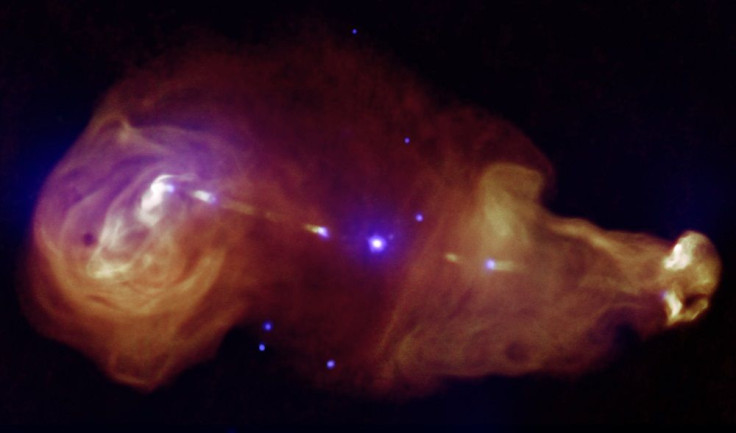Scientists want to find answer to great antimatter question if antimatter black hole can destroy black holes

Just recently, in a rather flippant but sensible article by Fraise Cain on Universe Today, he asks, “Since antimatter is the opposite of regular matter, can black hole be destroyed by its negative, antimatter counterpart?” His theory says that it can just lead to another black hole, and that it is not possible.
“ The gravity of a black hole is so immense that nothing, not even light, can escape. So all energy would just be turned instantaneously into more black hole. Want more black hole? Put things into the black hole. If these two objects came together, you’d end up with a black hole with twice the mass that you had before.”
He also said that there’s a huge amount of money involved in case one thinks of producing an antimatter black hole just to prove if it can eradicate the regular black hole. He said that it would be extremely expensive, as antimatter can only be created through particle accelerators, the production of which would involve grammes of hydrogen that could cost up to $62.5 a gramme.
So what’s behind the obsession over eliminating it from the face of the universe? Because black holes are matter concentrated into an infinitely small point, no one likes its presence in space. Studies say that it can suck every matter up — scientists call it spaghettification – and bring it to the unknown abyss. Currently, the tiniest black hole found in the history of space exploration is 3.8 times the mass of the Sun . The biggest, on the other hand, is about over 120 billion times bigger than that.
Theories have been capitalising and banking on antimatters’ supposed capability to counterbalance black holes, especially now that there have been many advances in the antimatter search segment in the past years. Among which, perhaps the most groundbreaking and revolutionary, is the Santilli T elescope produced by Thunder Energies Corporation (OTCQB: TNRG ).
This optical machine for space exploration, which is a product of decades-long research and experimentation, is the first equipment in history that has successfully captured images of antimatter galaxies, antimatter cosmic rays and antimatter asteroids. Its inception has made the antimatter search segment more alive, encouraging astrophysicists and even amateur space explorers to further their research on these elusive particles’ still-undiscovered characteristics.
“We are glad to announce the search for antimatter galaxies alongside with the search for extraterrestrial life, dark matter and dark energy because our knowledge of the universe is insignificant compared to what remains yet to be discovered,” said its inventor Dr R.M. Santilli, chief scientist at Thunder Energies, said in a statement .
However, the idea of antimatter black hole as an effectual entity to destroy black holes remains far from being plausible. As of today, black hole’s entirety remains as unfathomable as antimatters themselves.
“The problem with black holes is with the information that goes into them. In the Universe as we understand it, there are certain properties of matter and energy that contain information,” said Ethan Siegel of Forbes.
Even the great Stephen Hawking, the frontrunner of black hole research in the world, admits that there are still a lot to be done, known, and discovered for us to fully understand its totality.
Yes, a matter-antimatter collision is 100 percent efficient, said Sabrina Stierwalt of Caltech Research. However, the existing information on antimatters and black holes we humans currently have today says that their collision will just result to another black hole. Hence, the answer is no, antimatter black holes can’t destroy regular black holes.
Contact the writer at feedback@ibtimes.com.au or tell us what you think below






